Classical Art and Archeology - Exam 2
1/35
There's no tags or description
Looks like no tags are added yet.
Name | Mastery | Learn | Test | Matching | Spaced | Call with Kai |
|---|
No study sessions yet.
36 Terms
Women collecting saffron and Goddess receiving saffron from a monkey and a worshipper, Xeste 3, Akrotiri, Minoan, in situ,
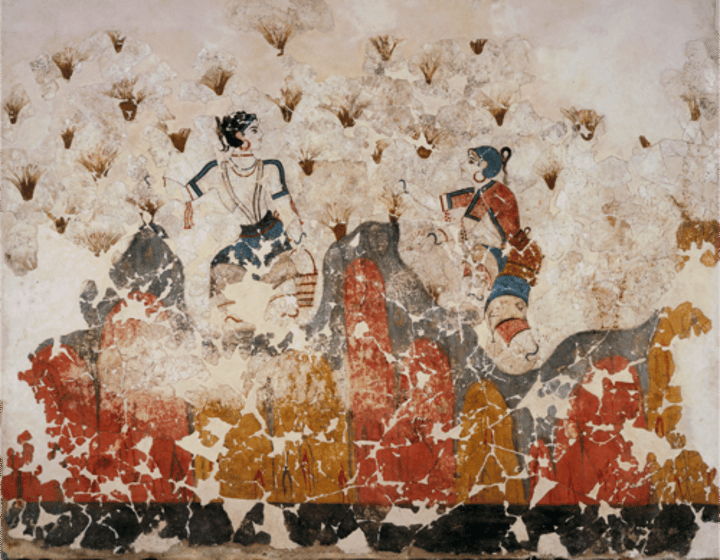
"Throne Room", Palace at Knossos, Minoan culture
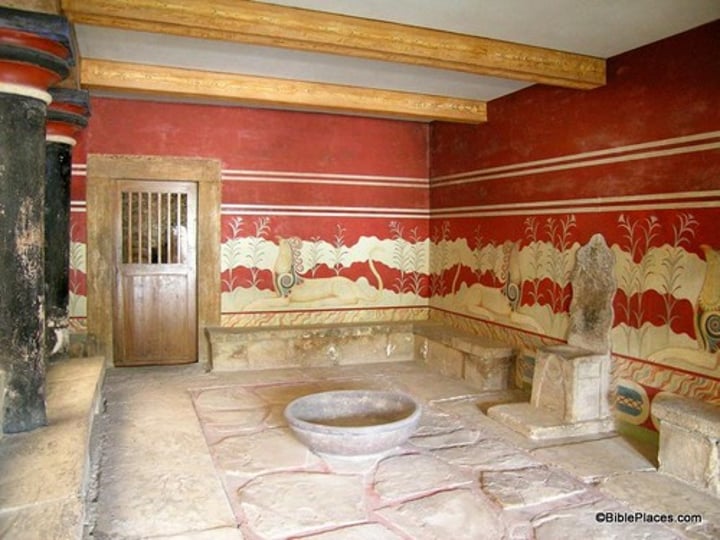
Hagia Triada sarcophagus, Minoan/Mycenaean hybrid.
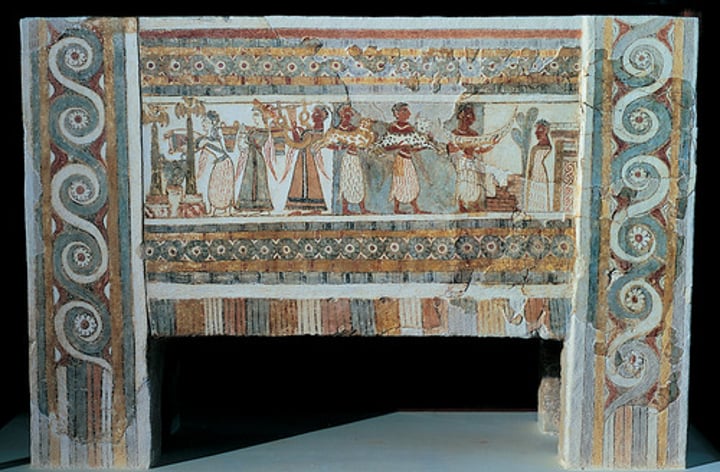
What do all of these objects and paintings suggest about the nature of Minoan and Mycenaean religious beliefs and practices?
The two cultures had similar and almost identical religious beliefs - same sacred symbols, bull, snake goddess, many gods
composition
The organization of the formal elements in a work of art
Line
The concrete visualization of a point moving through space - thick or thin? continuous or broken?
Color
The property possessed by an object of producing different sensations on the eye as a result of the way it reflects or emits light. - cool or warm, how is it used?
light and shadow
shading produces a sense of depth consistent with our assumption that light comes from above
Space
can be actual or an illusion (3-D vs. 2-D)
Proportion
size relationship between constituent parts of a single object or figure
Perspective
ways of representing 3-D space on a 2-D surface. overlapping, gradation, linear perspective?
Scale
size relationships of different objects
ortification walls and Lion Gate at Mycenae, in situ, Mycenaean
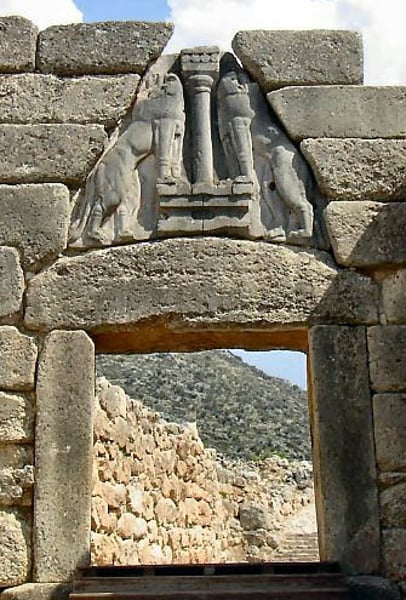
The Treasury of Atreus, Mycenae - in situ, Mycenaean
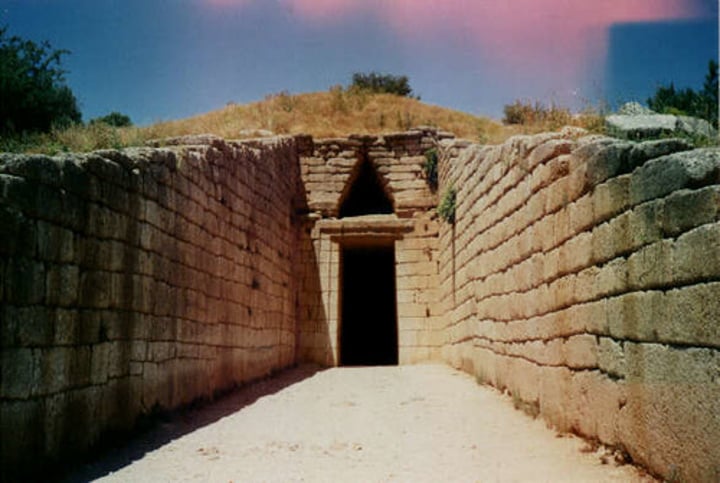
Palace at Pylos ("Palace of Nestor"), Pylos, Mycenaean
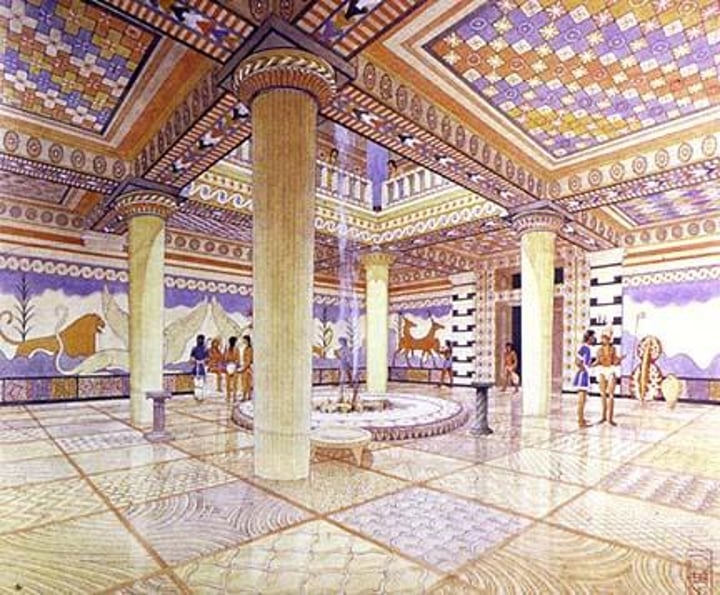
The contributions - both positive negative - of Schliemann's work at Troy and Mycenae
Positive:
negative: he used dynamite, potentially destroying several artifacts. He thought he was discovering Troy so he falsely identified several artifacts
Megalithic
A large stone used in some prehistoric architecture
relieving triangle
in Mycenaean architecture, the triangular opening above the lintel that serves to lighten the weight to be carried by the lintel itself
cyclopean masonry
A method of stone construction, named after the mythical Cyclopes, using massive, irregular blocks without mortar, characteristic of the Bronze Age fortifications of Tiryns and other Mycenaean sites.
ashlar masonry
carefully cut and grooved stones that support a building without the use of concrete or other kinds of masonry
Tholos
A temple with a circular plan. Also, the burial chamber of a tholos tomb.
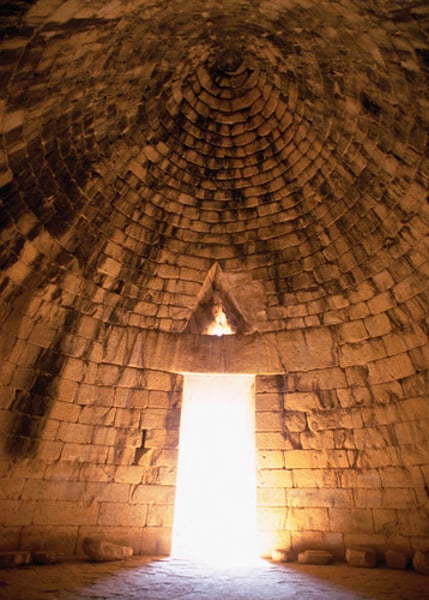
Tumulus
An artificial mound of earth and stones placed over a grave
Dromos
passage leading to a tholos tomb
Corbelling
In architecture, a construction, technique in which each course of stone projects slightly beyond the one below. Corbelling can be used to create space spanning forms that resemble the arch, the vault, and the dome, thought they do not bear weight in the same way.
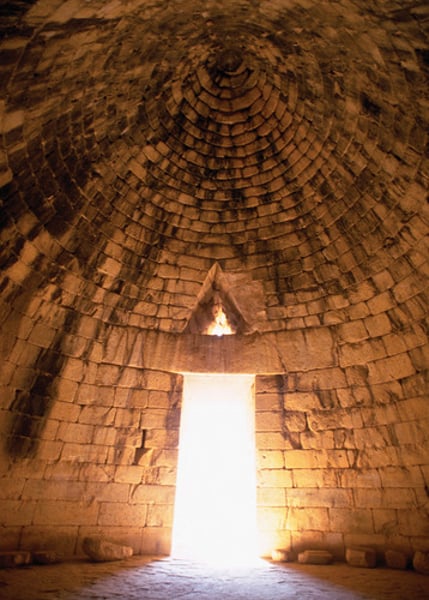
Megaron
great, central hall of the house, usually containing a center hearth
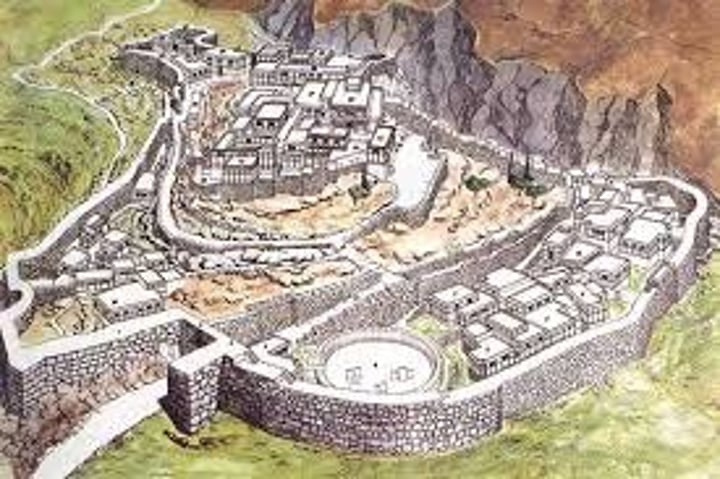
Tarzan" fresco fragment (River Battle), from the Palace at Pylos, Mycenaean, watercolor copy
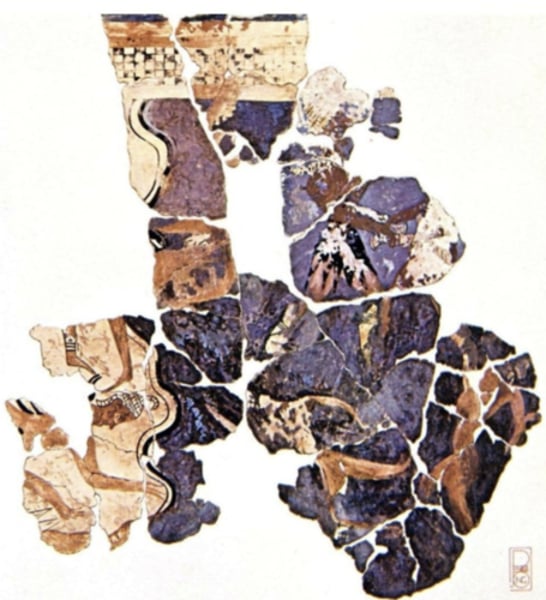
Dagger with Hunting Scene, Found in Grave Circle A, Mycenae, Mycenaean

Mask of Agamemnon, from shaft grave V, grave circle A, Mycenae, Mycenaean
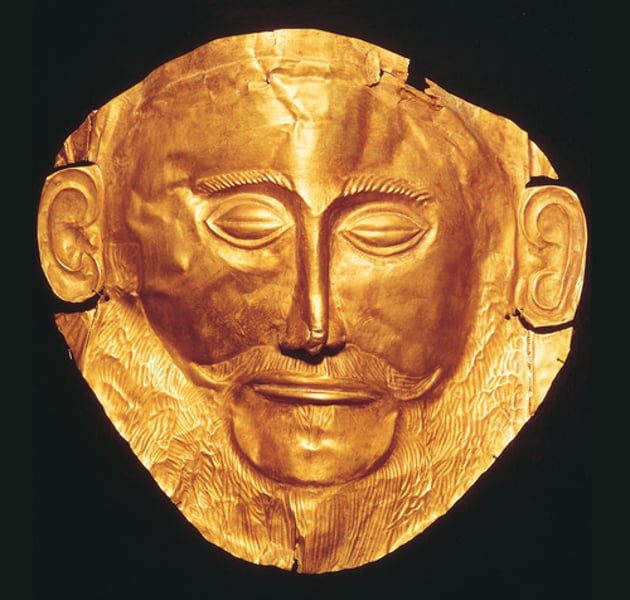
Terracotta krater, c. 750-735 BCE
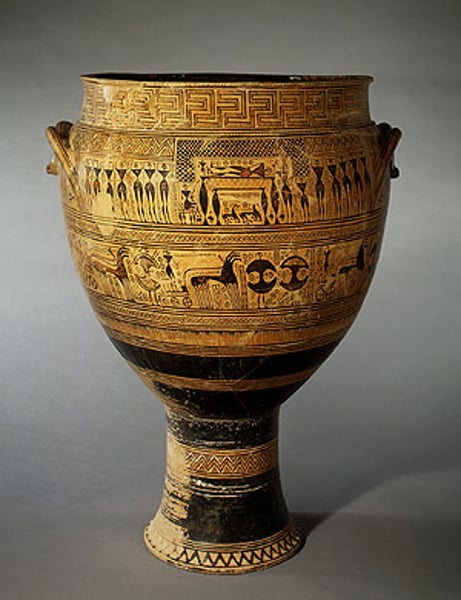
Stele
A carved stone slab used to mark graves or to commemorate historical events.
connoisseurship
expert knowledge - uses the skills of visual analysis to compare art of the same time
Amphora
a tall ancient Greek or Roman jar with two handles and a narrow neck.
Krater
An ancient Greek wide-mouthed bowl for mixing wine and water.
Centaur
mythical figure, half man and half horse
Statuette of a snake goddess. Early Aegean, Minoan Bronze Age, Late Minoan I Period or Modern, Minoan? or Fake
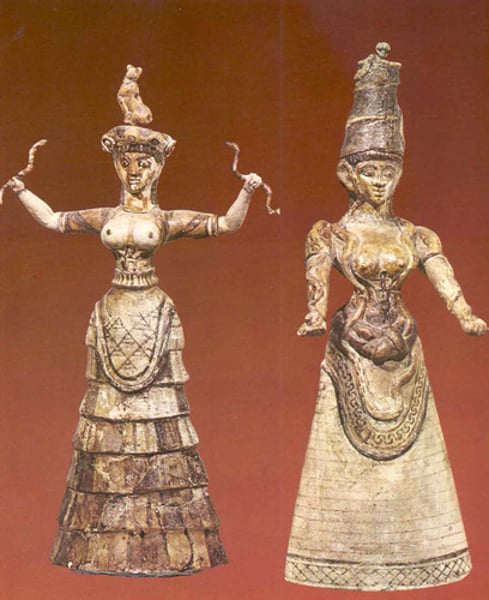
pastiche
Mix of incongruous parts; artistic work imitating the work of other artists